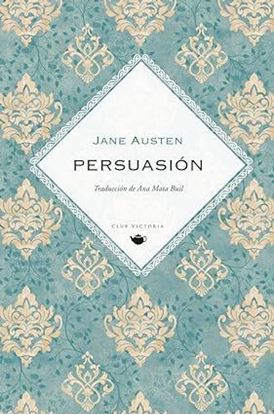

LA LEGION PERDIDA (TRAJANO 3) (TD)
En el año 53 a.C. el cónsul Craso cruzó el Éufrates para conquistar Oriente, pero su ejército fue destrozado en Carrhae. Una legión entera cayó prisionera de los partos. Nadie sabe a ciencia cierta qué pasó con aquella legión perdida. Ciento cincuenta años después, Trajano está a punto de volver a cruzar el Éufrates. Los partos esperan al otro lado. Las tropas del César dudan. Temen terminar como la legión perdida. Pero Trajano no tiene miedo y emprende la mayor campaña militar de Roma, hacia la victoria o hacia el desastre. Intrigas, batallas, dos mujeres adolescentes, idiomas extraños, Roma, Partia, India, China, dos Césares y una emperatriz se entrecruzan en el mayor relato épico del mundo antiguo, La legión perdida, la novela con la que Santiago Posteguillo cierra su aclamada trilogía sobre Trajano.
1,800
PERSUASION (TD)
Publicada en 1817, poco después del fallecimiento de su autora, Persuasión está considerada la obra de madurez de Jane Austen, en que nos presenta a su protagonista más moderna: una mujer que es consciente de que vive en un mundo cambiante y de que eso la obliga a tomar sus propias decisiones. Esta es la historia de Anne Elliot, una joven de 27 años que, tras diversas vicisitudes, acaba reencontrándose con un viejo amor. Ocho años antes, Anne estuvo comprometida con Frederick Wentworth, un joven oficial de la marina con un futuro prometedor pero escasos recursos. Por esta razón, el padre de la muchacha, su hermana mayor y otros parientes en los que ella confiaba la persuadieron de romper el compromiso, ya que, al fin y al cabo, era altamente improbable que no encontrara un partido mejor. Sin embargo, cuando el flamante capitán Wentworth regresa a Inglaterra con unas cuantas victorias a sus espaldas, Anne duda de la decisión que tomó a los 19 años. Pero entre ambos se interponen los intereses y los cálculos de muchos otros personajes que no facilitarán que la pareja se acabe sincerando.
1,800
SENSATEZ Y SENTIMIENTO (TD)
A raíz de la repentina muerte del padre de familia, las hermanas Dashwood ven profundamente alterada su vida, hasta entonces alegre y despreocupada. De pronto se encuentran desamparadas y tienen que irse de la casa familiar, que por herencia ha pasado a su hermanastro. Las dos hermanas mayores (Elinor, tranquila y prudente, y Marianne, impulsiva y romántica) se enamorarán y experimentarán dolorosas decepciones, pero su sufrimiento las ayudará a comprenderse mejor y a descubrir que, para ser realmente felices, la sensatez debe dejar paso al sentimiento y el sentimiento debe ceder ante la sensatez. sensatez. Esta es, sin duda, una de las grandes novelas de Jane Austen y de la historia de la literatura universal.
1,800











